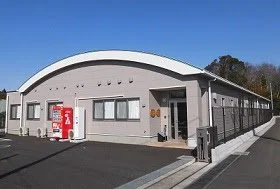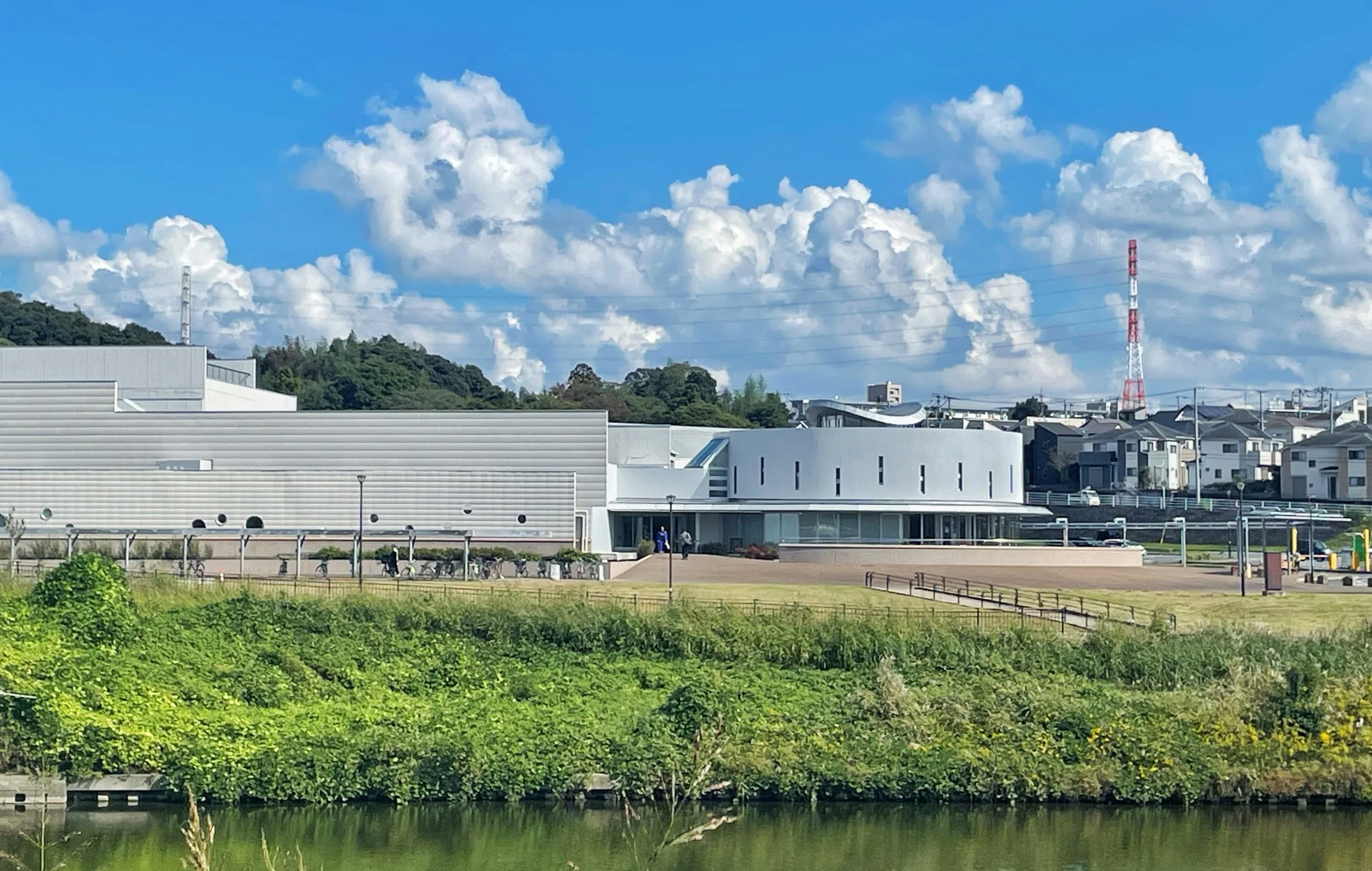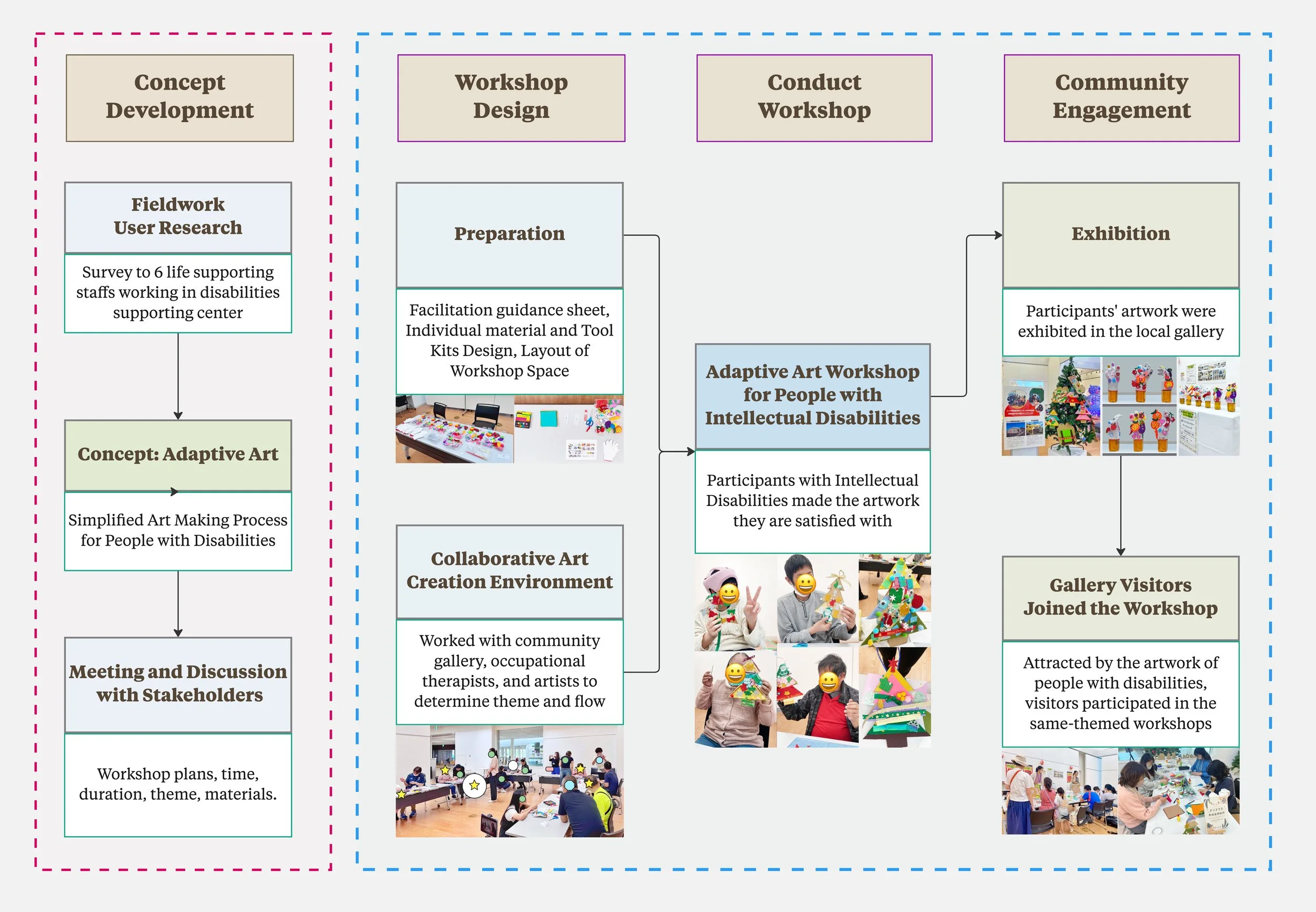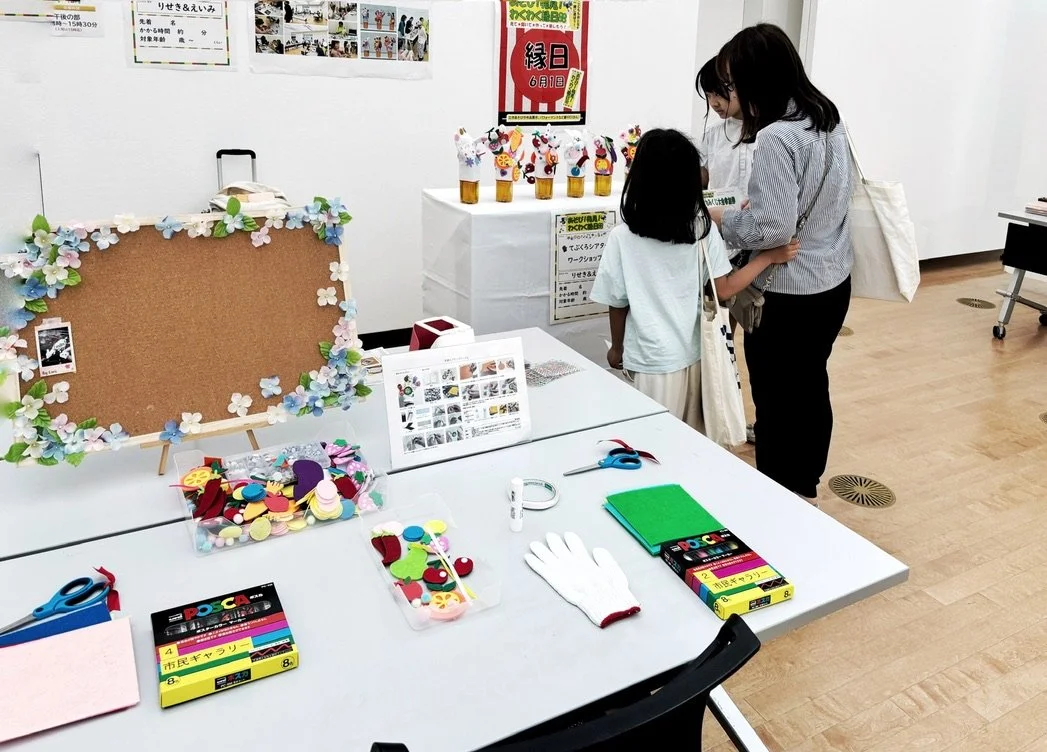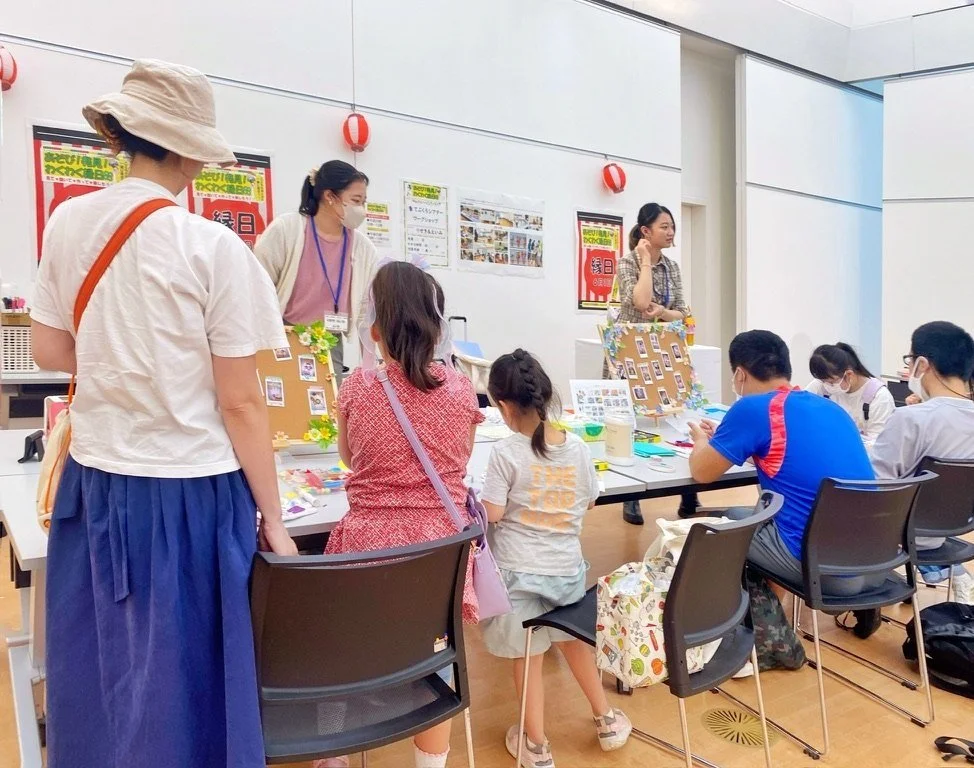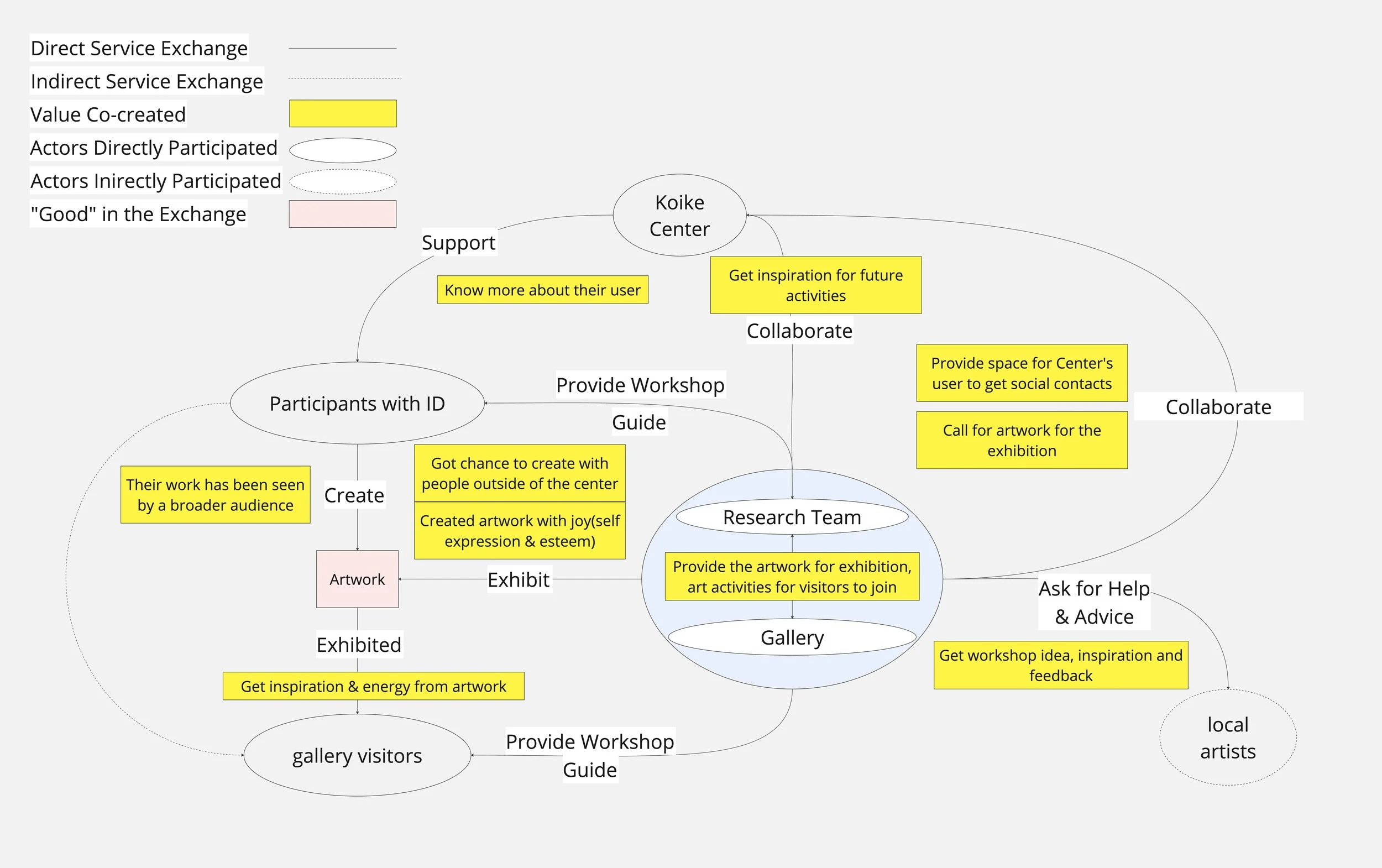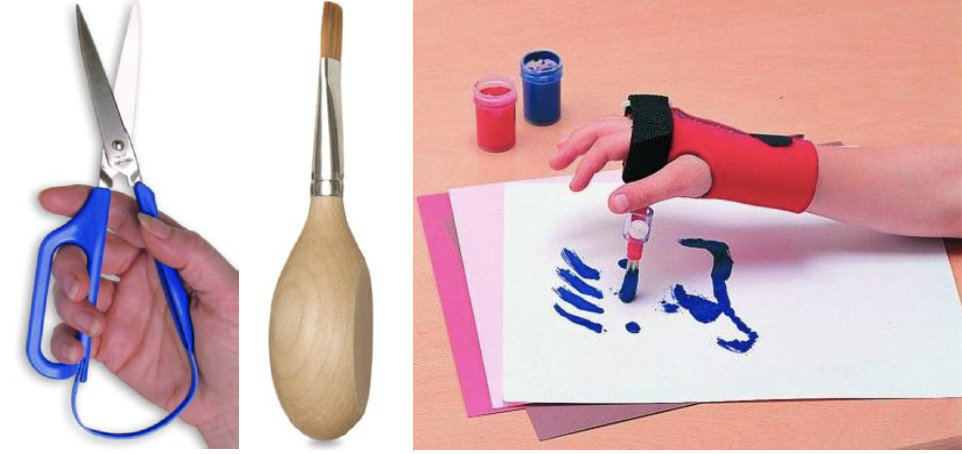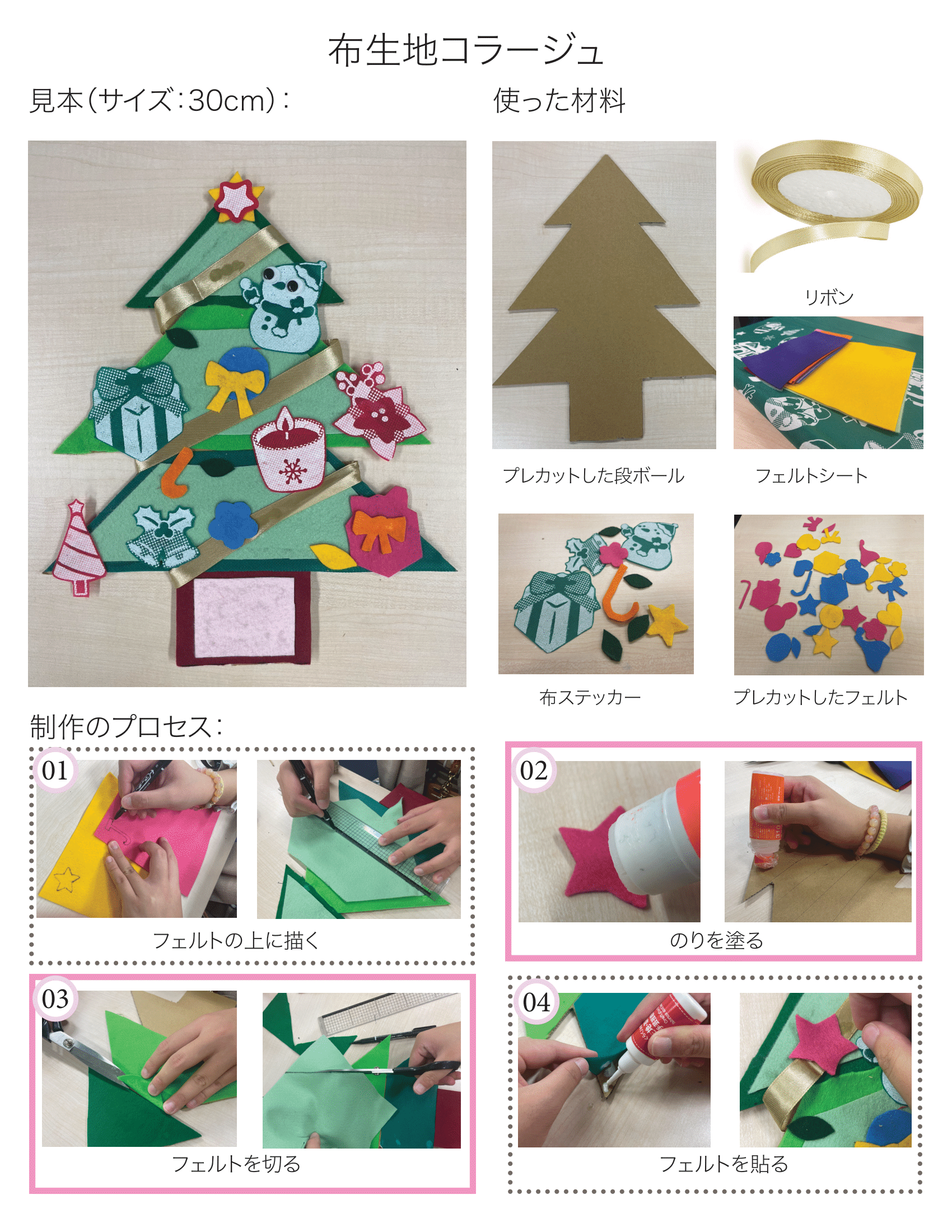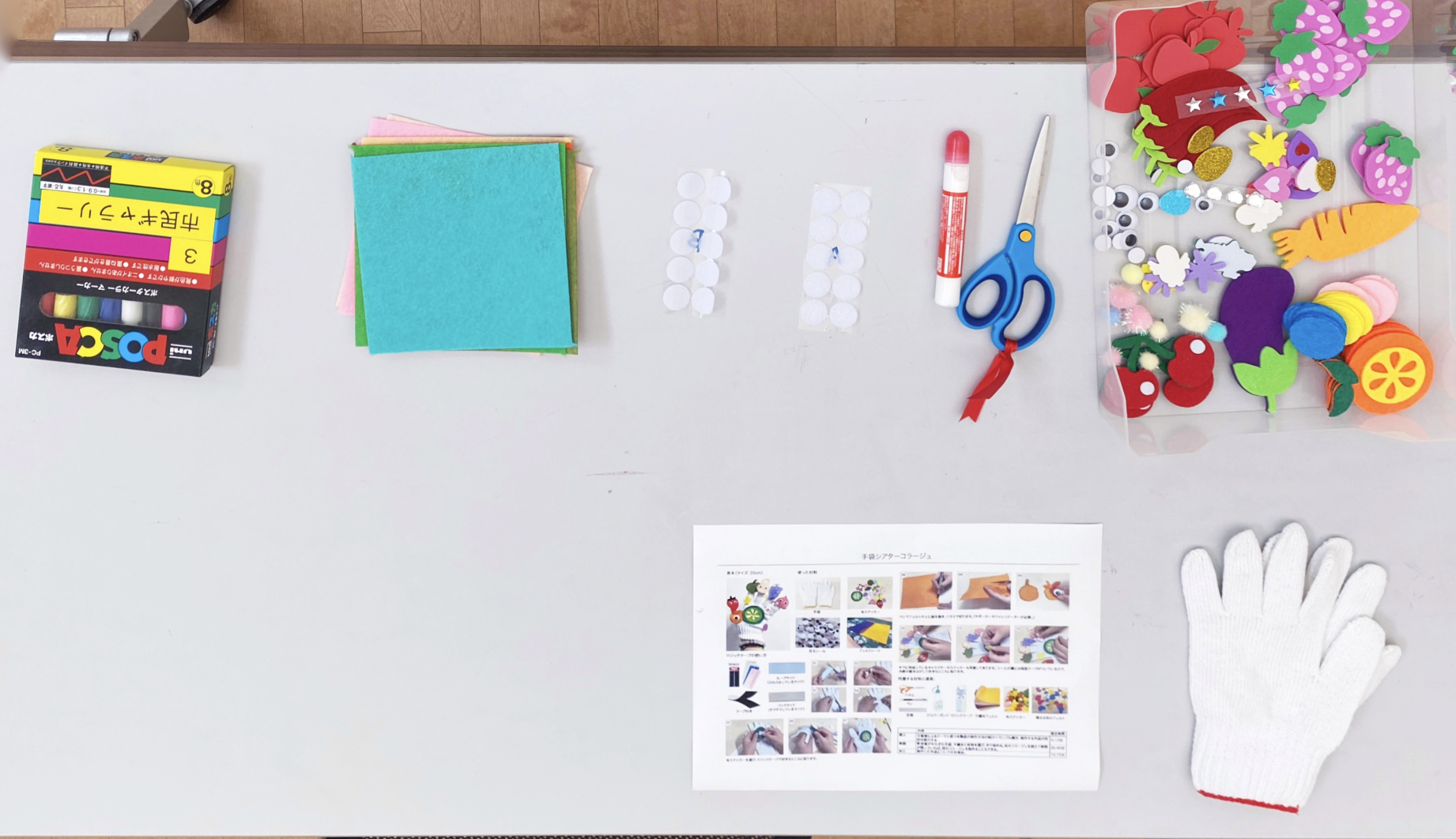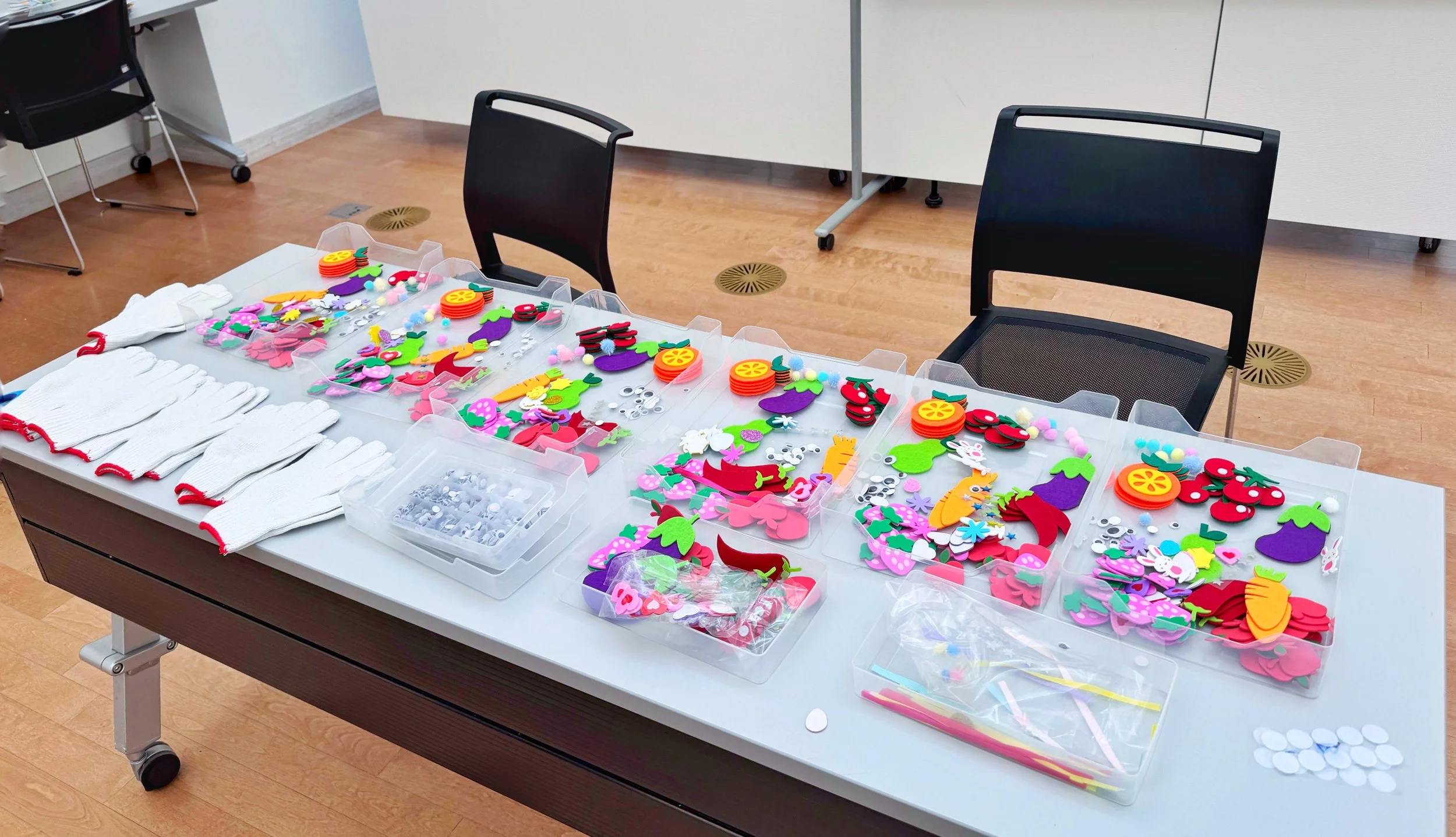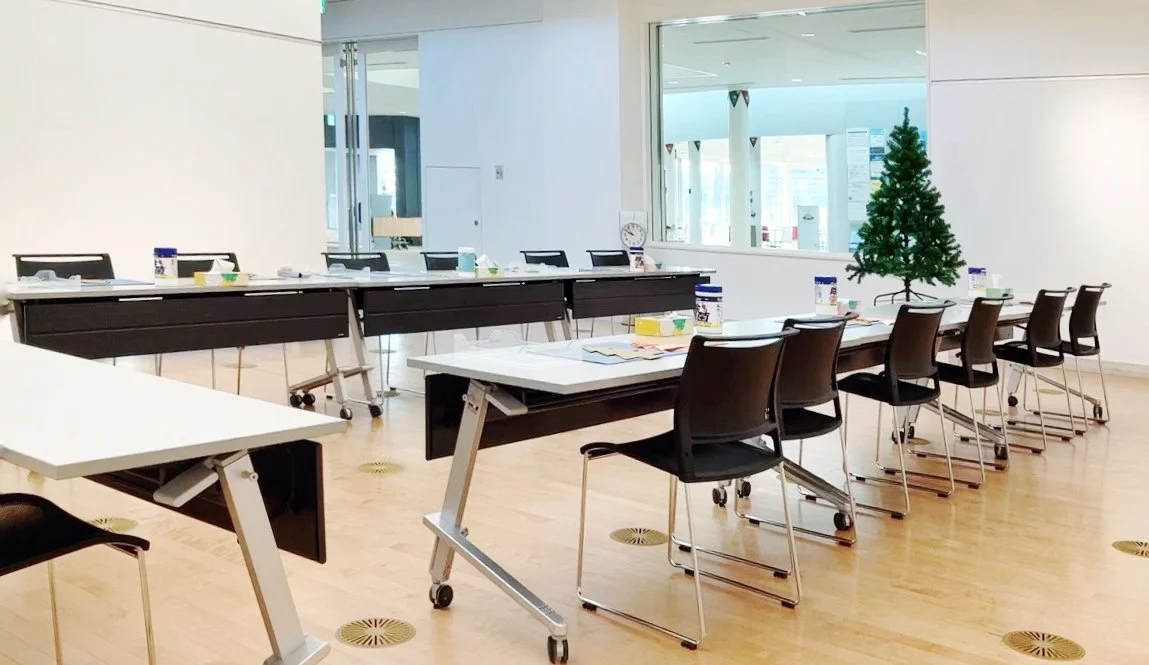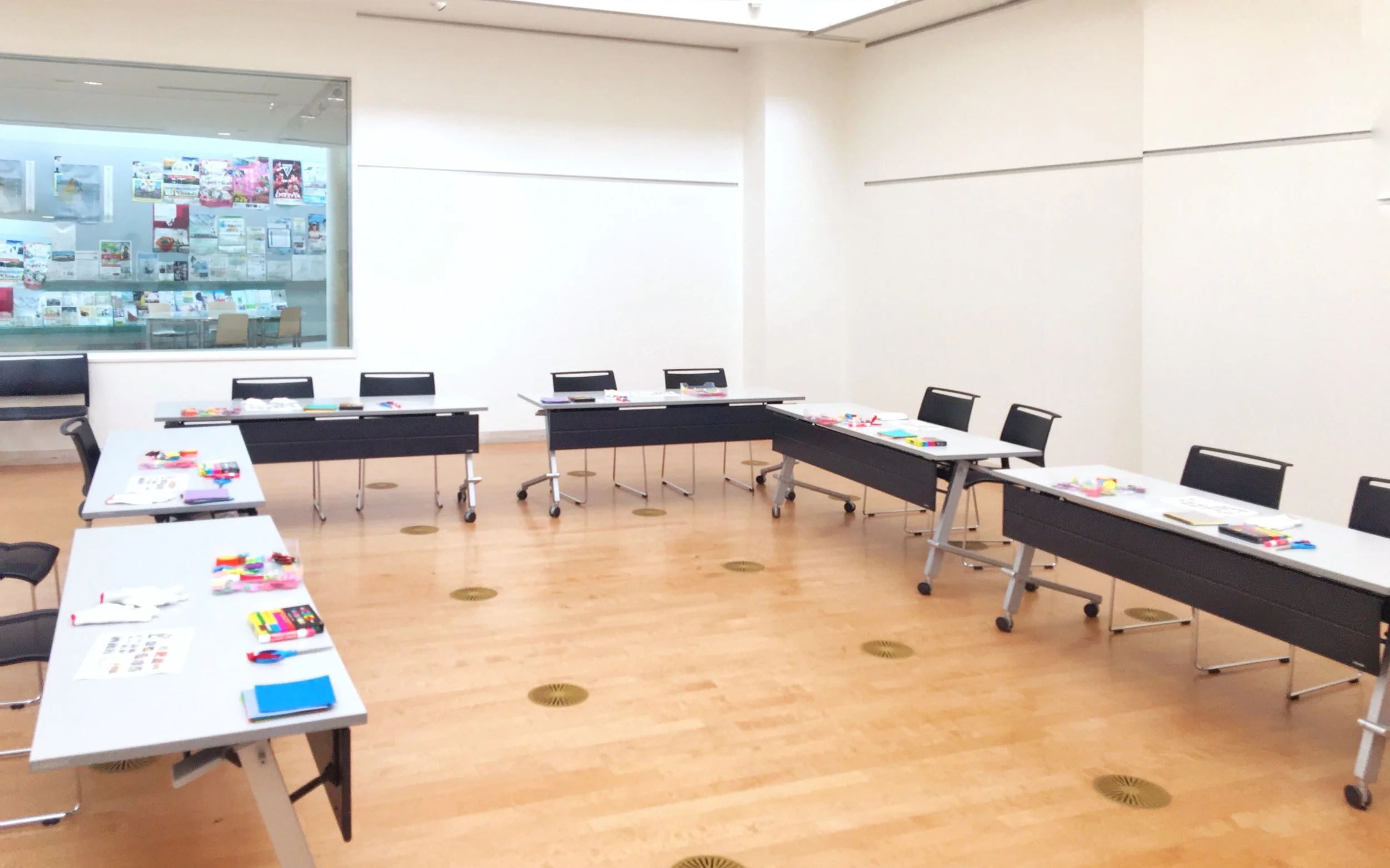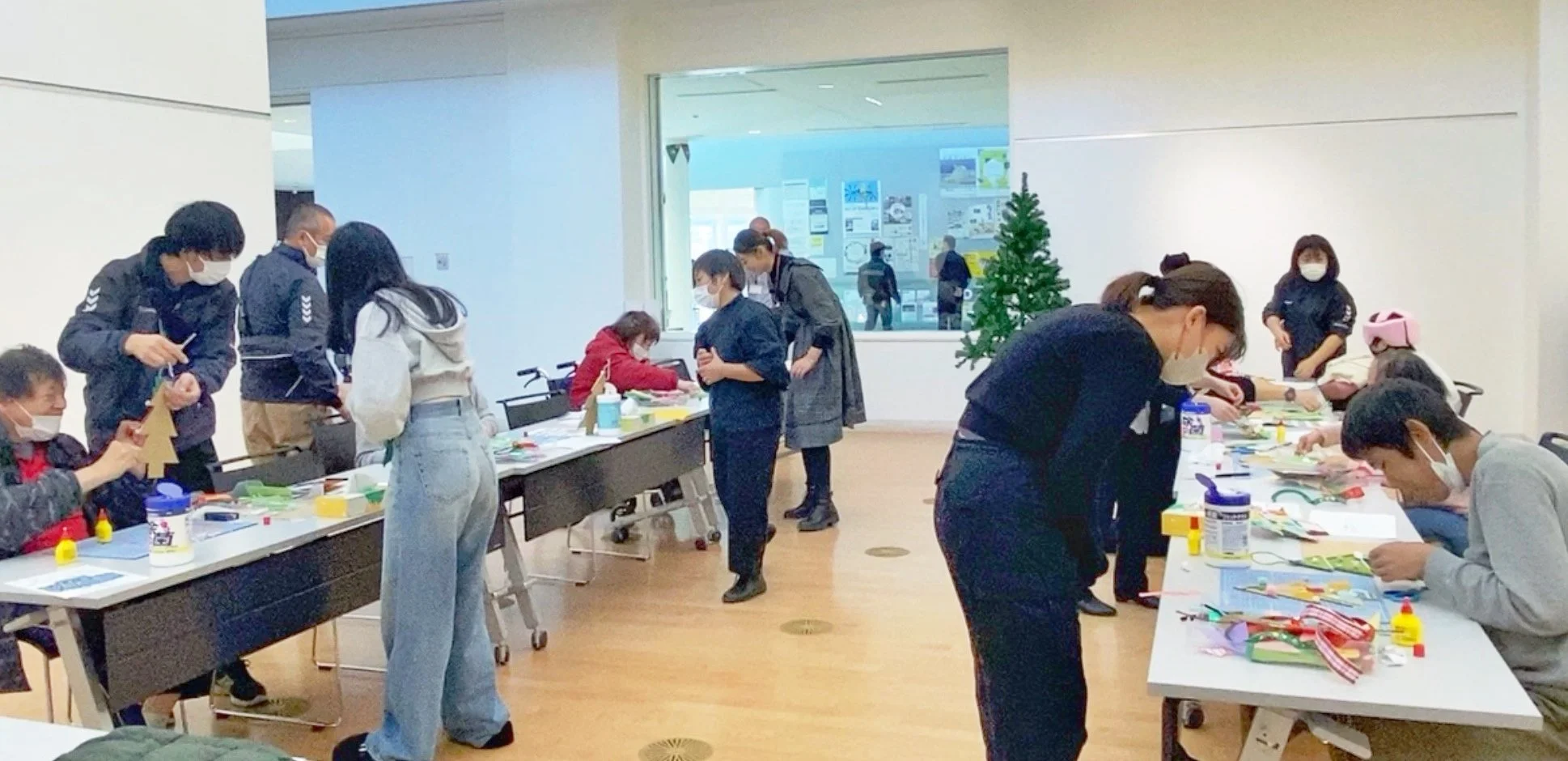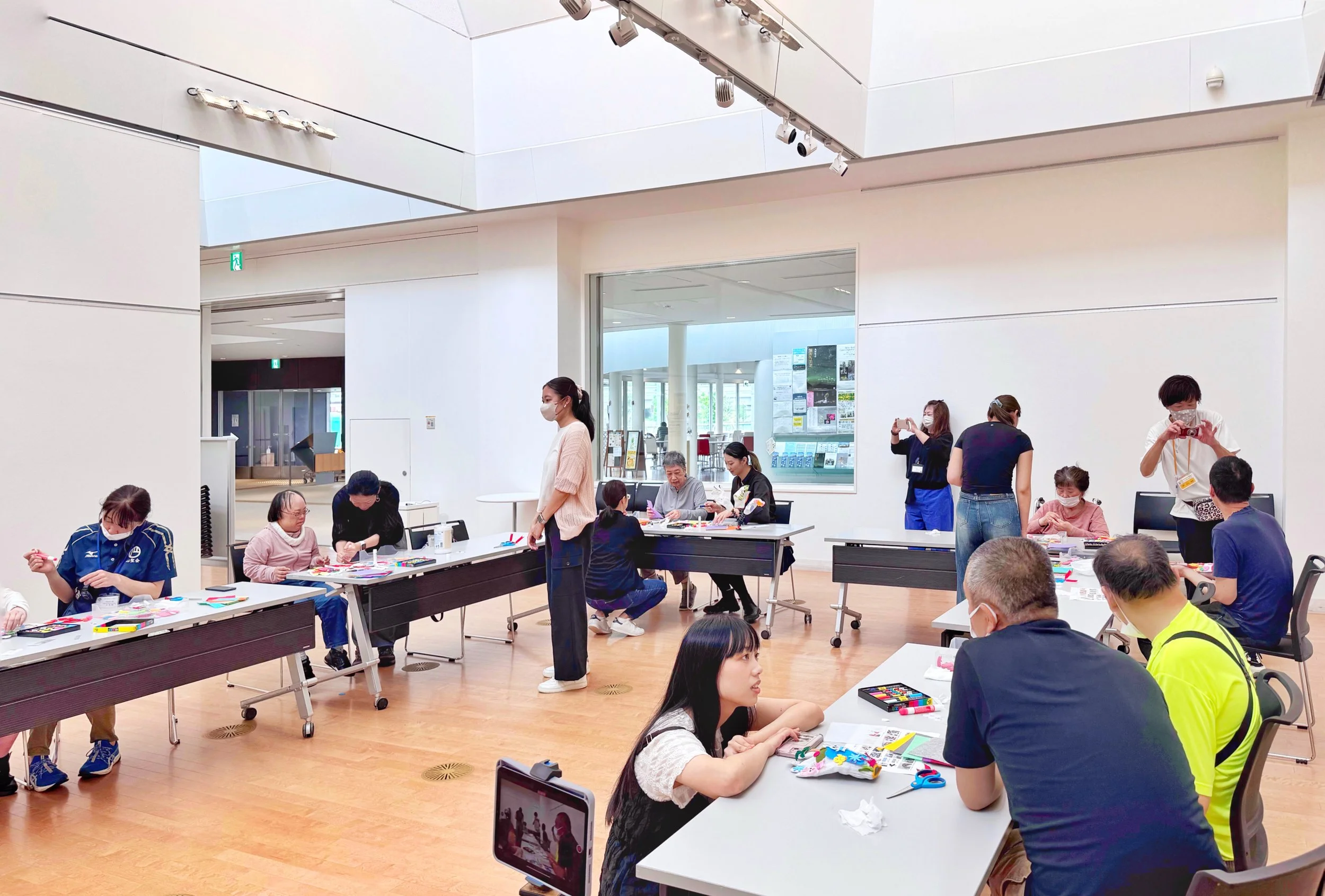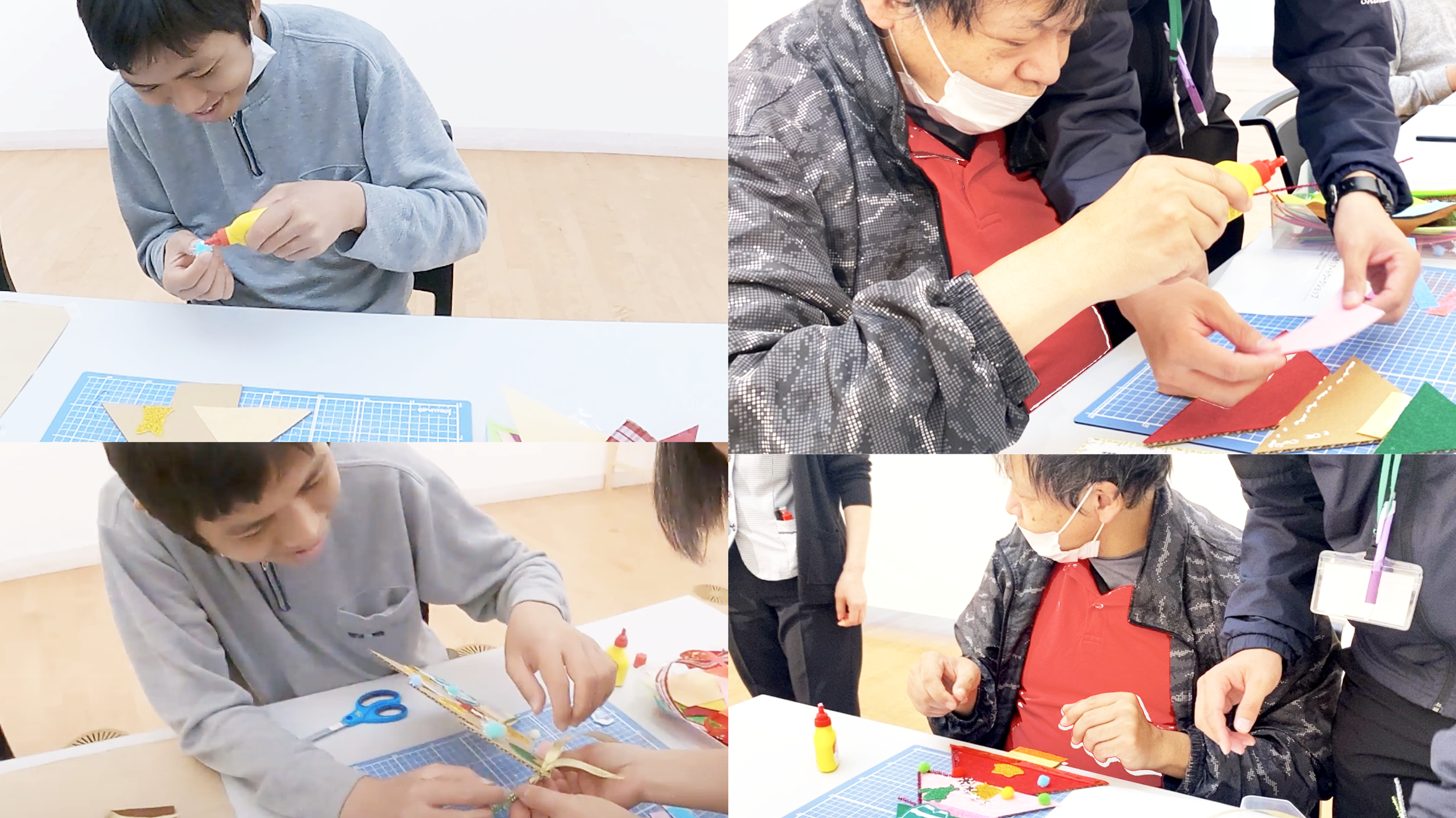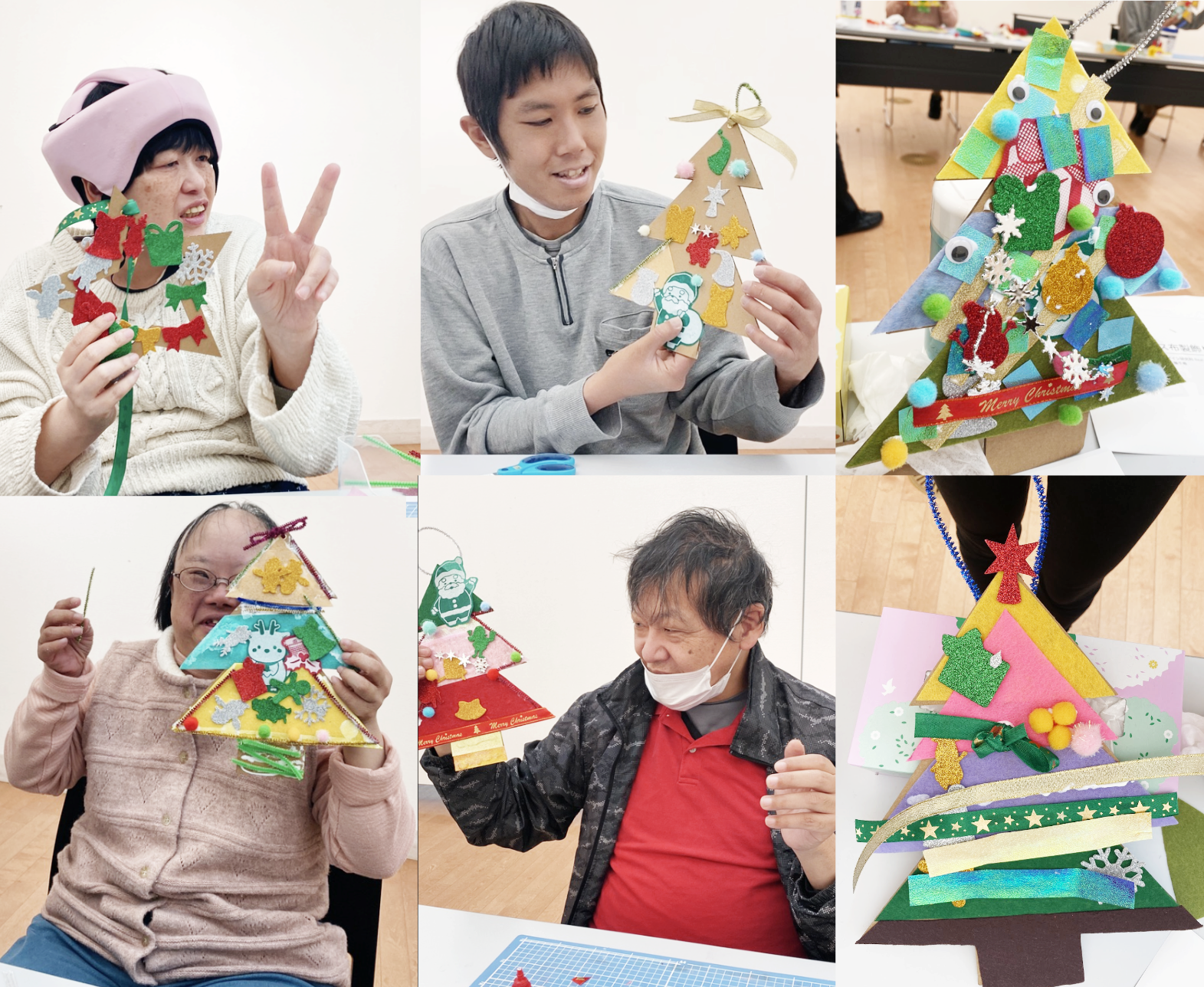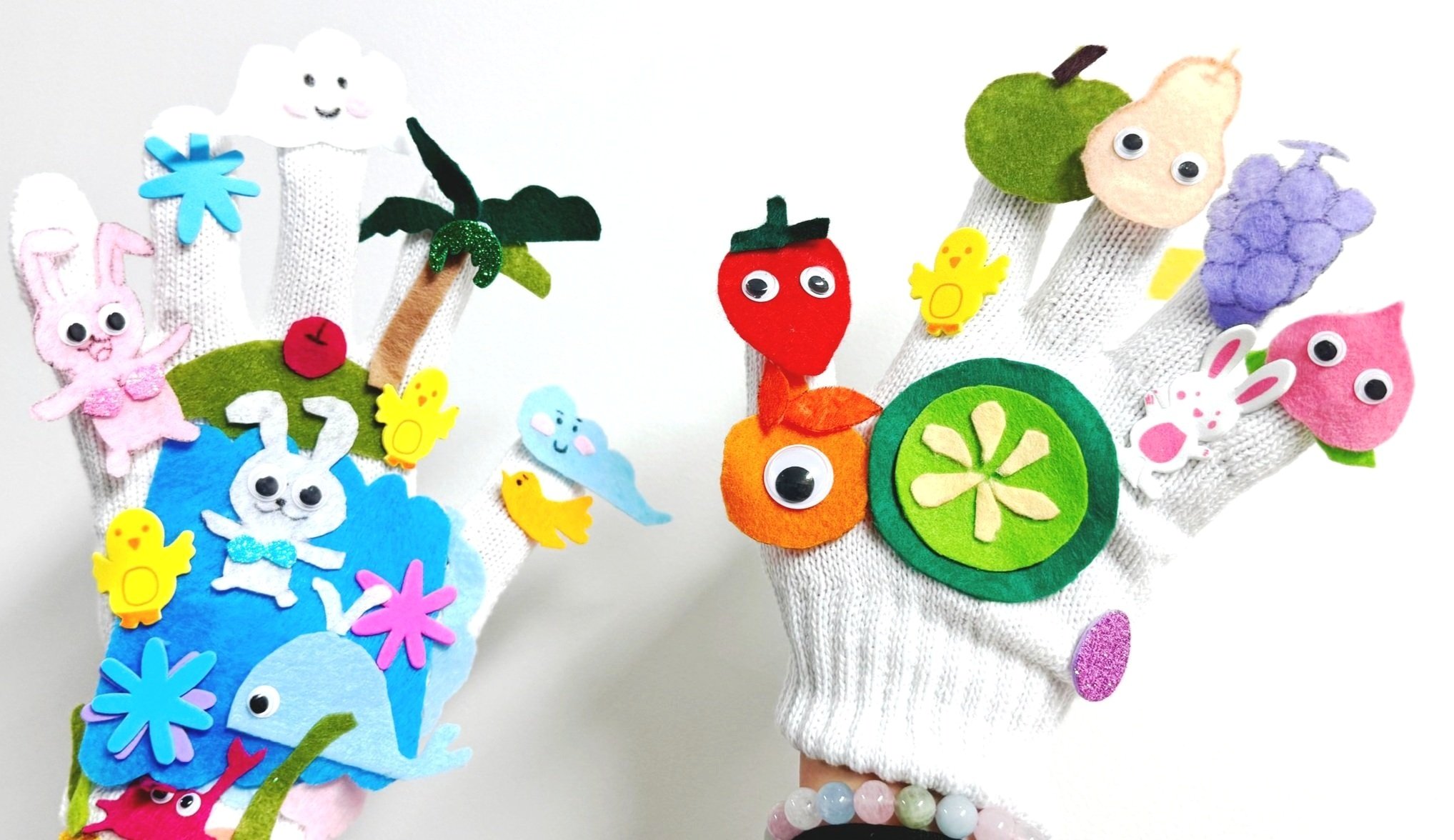
Adaptive Art Workshops
Brief Introduction
Building Collborative Art Creation Environment for People with Intellectual Disabilities through Adaptive Fabric Art Workshops
Published in ASSETS 2024: The 26th International ACM SIGACCESS Conference on Computers and Accessibility
Co-author: Giulia Barbareschi, Chihiro Sato
My Role
Project Planning & Workflow Design
Fieldwork & User Research
Collaborations and Meeting with Stakeholders
Selections of Theme, Materials and Tools
Conduct and Host Workshop
Data Analysis
Academic Publication Write Up
Collaborators
Yachiyo City Gallery
八千代オーエンス市民ギャラリー
Yachiyo Koike Disabilities Supporting Center
八千代市こいけ障害者支援センター
Problems to Solve / Improve for People with Intellectual Disabilities
Have Difficulties with Body Control
Limited access to social activities
Lack of Inclusive Creative & Cultural Activities
Need to Reduce Social Isolation
Need Social Contact outside Caregivers
People with intellectual disabilities (ID)often face significant challenges that hinder their engagement in local communities, Addressing these limitations is crucial for enhancing their social contact, reducing experiences of social isolation which is characterized by infrequent social contact, highlights the need for individuals with severe disabilities to engage in meaningful activities outside their immediate care or residential circles. Overcoming these barriers through meaningful engagement is essential for improving the quality of life for individuals with ID.
Challenges and Solutions
Challenge 1:
Participants have difficulties with verbal expression, hand control, and need visual guidance
Solution:
Conduct survey to life supporters to understand users’ preference, design and print facilitation guidance
Challenge 2:
Select joyful theme, user-friendly materials and tools.
Solution:
Discussed and collaborated with professional occupational therapists and art educators to get inspiration
Challenge 3:
Workshop environment setup: supportive and collaborative
Solution:
Discussed and collaborated with community gallery, ensure enough space for participants, supporters and facilitators
Design Process
Result
For the participants with intellectual disabilities and the life supporting center, the events provided a new social contact point and strengthened their ties to the local community.
For gallery visitors, This exhibition not only inspired visitors but also raised their awareness and understanding of people with intellectual disabilities.
The artwork made by people with disabilities were exhibited in the local gallery, facilitating an indirect service exchange with local gallery visitors, which enhanced the connection for people with and without disabilities in the community, and fostered the inclusivity of the society.
Service Exchange Map
More Details Below
More Details Below
Design Concept: Adaptive Art
- Simplifies the art-making process by adjusting tools, media, and techniques.
- User-centric approach for people need specialized care.
- Interdisciplinary collaboration is essential to expand arts accessibility.
Adaptive art is a specialized approach in the field of art therapy that focuses on modifying traditional art-making processes, tools, and materials to accommodate the diverse needs of individuals with disabilities, which aims to make art accessible and inclusive, ensuring that everyone, regardless of their physicalor cognitive abilities, can participate in and benefit from creative activities.
Adaptive Art Utensils

